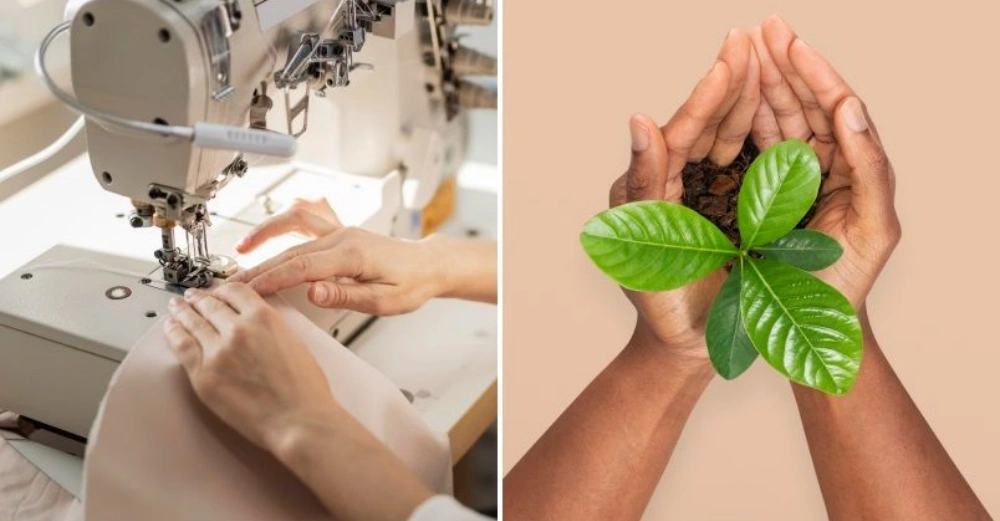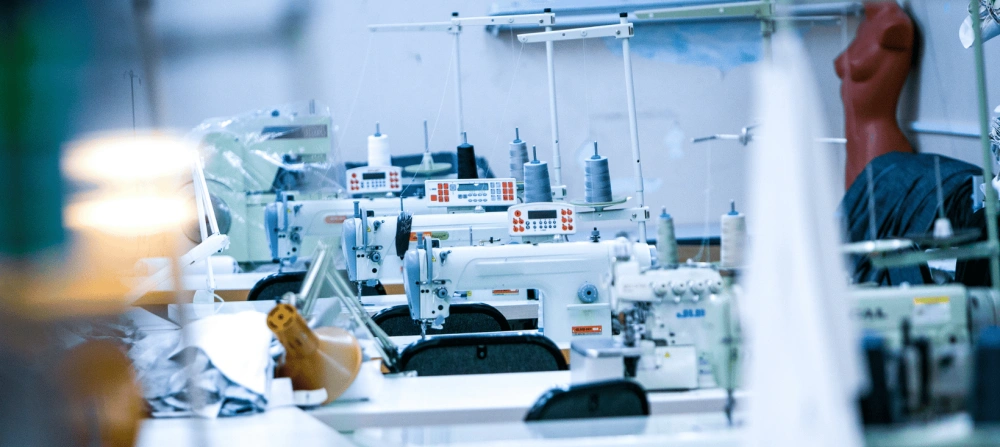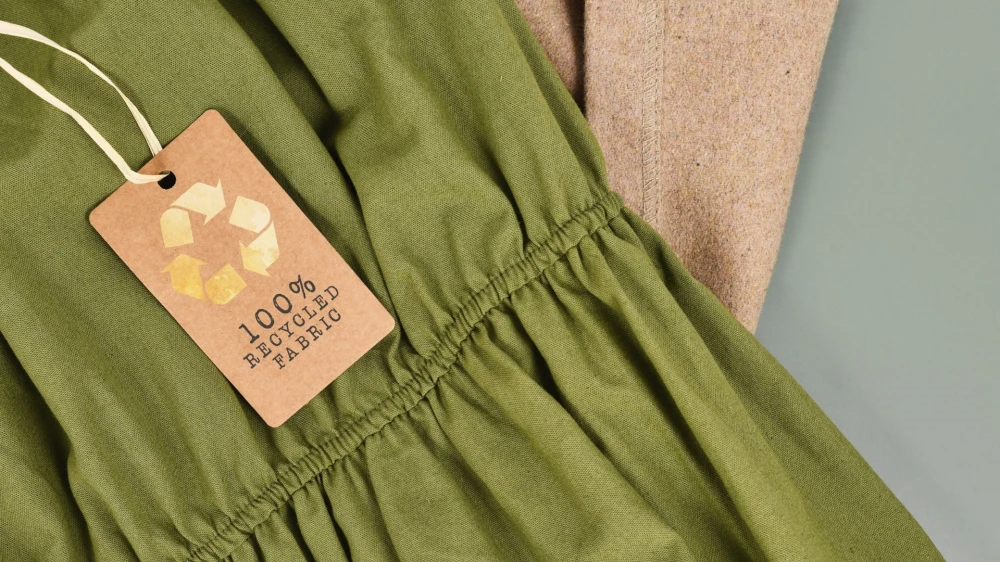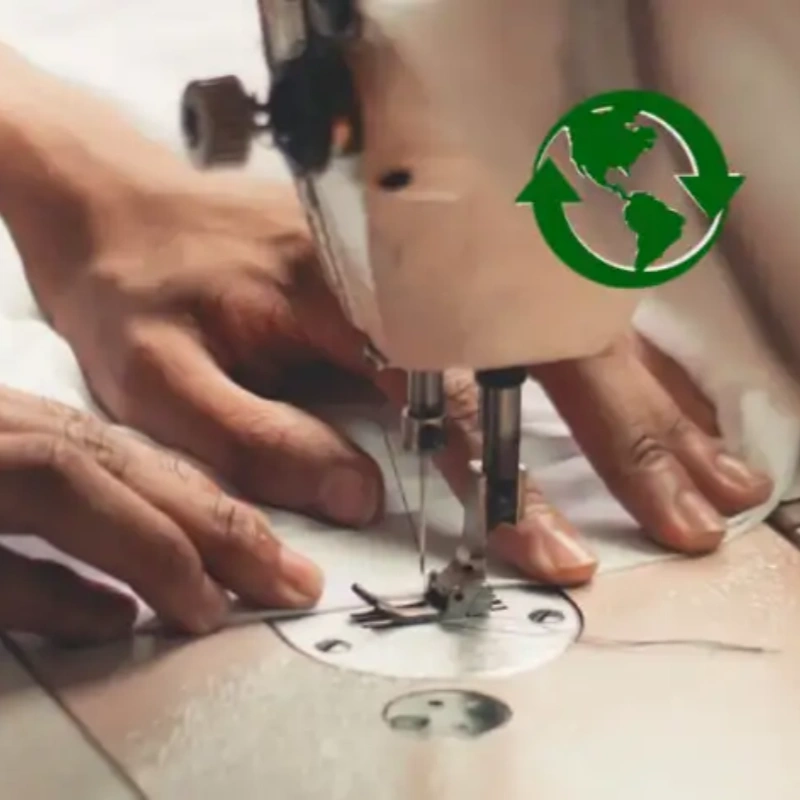Looking for the top sustainable clothing manufacturers USA for 2025? You want partners who care about sustainability, ethical labor, and quality. Over the past five years, the market for eco-friendly fashion has experienced rapid growth.
People now prefer products made with responsible materials and practices. When selecting a manufacturer, verify certifications, transparent sourcing practices, and consistently high product quality. This list helps you connect with reliable companies that share your values.
The sustainable fashion market in the USA is expected to reach about $9 billion by 2033.
Growth comes from rising awareness of fast fashion’s impact and a shift toward eco-friendly choices.
Key Takeaways
Sustainable clothing manufacturers prioritize eco-friendly materials and ethical labor practices. Look for certifications like GOTS and Fair Trade to ensure quality.
Choosing local manufacturers reduces shipping emissions and supports local economies. This leads to better quality control and faster turnaround times.
The 7 R’s of sustainable fashion—Reduce, Reuse, Recycle, Repair, Repurpose, Refuse, and Rethink—guide consumers in making responsible choices.
Researching manufacturers helps you avoid greenwashing. Always ask for proof of certifications and transparency in their supply chain.
Supporting sustainable brands not only benefits the planet but also promotes fair labor practices and community development.
Sustainable Clothing Manufacturers USA
You want to know what makes sustainable clothing manufacturers stand out in the USA. These companies focus on more than just style—they care about the planet and people. When you look for a partner, you should check how they approach sustainability in every step of their process.
Selection Criteria
Choosing the right manufacturer means looking at several factors. You want brands that use natural fibers like organic cotton, Merino wool, hemp, or bamboo. They should have clear certifications and labels, such as GOTS or Fair Trade.
You should also look for companies that reduce energy and water use, make durable products, and share details about their supply chain. Local production helps cut down the carbon footprint, and timeless designs keep clothes out of landfills.
Tip: Always ask about transparency and ethical sourcing before you commit to a manufacturer.
Certifications
Certifications show you which brands meet high standards for sustainability and ethics. Here’s a quick look at some of the most common certifications:
Certification Name | Focus Area | Notable Brands |
|---|---|---|
Fair Trade USA | Social responsibility | REI, prAna, J.Crew, Pact, Madewell |
Global Organic Textile Standard (GOTS) | Environmental and social impact | Organic Basics, Everlane, Pact, Synergy |
Global Recycled Standard (GRS) | Recycled content verification | Wolven, Kuyichi, TALA, Silou, Mandala |
Standard 100 by OEKO-TEX | Product safety | Reformation, Calvin Klein, Outland Denim, Fruit of the Loom |
You might also see Cradle to Cradle, Ecocert, WRAP, and Green America Certified.
Materials
Eco-friendly materials are key. You’ll find organic cotton, recycled polyester, viscose, and blends made from responsibly sourced fibers. These choices help reduce waste and pollution.
Ethical Practices
Sustainable clothing manufacturers must treat workers fairly. They reject discrimination, pay livable wages, and never use child labor. Safe working conditions matter.
Staff get involved in decisions and have access to support. When you choose a manufacturer with these values, you support a better future for everyone.
Top 6 USA Clothing Manufacturers
You want to work with the best sustainable clothing manufacturers usa has to offer. Here are six top picks for 2025. Each company brings something special to the table, whether it’s eco-friendly materials, ethical labor, or innovative processes. Let’s dive in.
Nature USA
Nature USA operates out of California. You’ll find them at the forefront of eco-friendly apparel. They specialize in organic cotton basics, custom printing, and private label manufacturing.
Their commitment to local production helps cut down on shipping emissions. Nature USA uses water-based inks and low-impact dyes. You get soft, durable clothing that feels good and does good. They offer flexible order sizes, so you can start small or go big.
Tip: Nature USA’s local supply chain means you get faster turnaround and lower carbon footprint.
GOEX Apparel
GOEX Apparel stands out among USA clothing manufacturers for its strong focus on people and the planet. You’ll see their dedication in every step of their process. They operate from Kansas City, Missouri, and offer T-shirts, hoodies, and custom orders. GOEX Apparel’s sustainability initiatives set them apart:
Category | Initiative | Description |
|---|---|---|
PEOPLE | Code of Conduct | Ensures a safe and healthy workplace for employees. |
PEOPLE | Wellness | Supports employee health with healthcare plans, gym memberships, and wellness challenges. |
PEOPLE | Tuition Reimbursement | Offers financial support for employees pursuing education. |
PLANET | Energy Efficiency | Implements new manufacturing equipment and energy-saving lighting. |
PLANET | Water Conservation | Reuses process water in a closed-loop system. |
PLANET | GHG Tracking | Monitors and seeks to reduce greenhouse gas emissions. |
PLANET | Freight Efficiency | Uses rail for 70% of raw materials to lower GHG emissions. |
PLANET | Waste Reduction | Promotes reusable materials and recycles plastic resins. |
PRODUCTS | Recycled Materials | Incorporates recycled materials into products through a closed-loop system. |
You get more than just clothing. You support a company that cares about its workers and the environment.
PACT
PACT is one of the most recognized sustainable clothing manufacturers in the USA right now. They focus on organic cotton basics, underwear, and activewear. You’ll find their headquarters in Boulder, Colorado. PACT’s ethical labor practices and supply chain transparency matter to many buyers. Here’s what you should know:
PACT sources almost exclusively GOTS-certified organic cotton from Fair Trade Certified factories.
Their Fair Trade label means strong worker protections, but not all products have this verification.
PACT does not have a publicly available supplier code of conduct.
Some products come from countries with weak labor protections, like Turkey, where wages fall below a living wage.
Supply chain information is limited, so you may want to ask for more details before placing a large order.
PACT’s commitment to organic materials and Fair Trade factories makes them a solid choice, but you should always check for full transparency.
Royal Apparel
Royal Apparel is a leader among USA clothing manufacturers. You’ll find their headquarters in Hauppauge, New York. They produce American-made basics, fashion tees, and custom orders. Royal Apparel’s approach to sustainability stands out:
They focus on American-made products.
Royal Apparel embraces a circular fashion economy.
Their practices prioritize waste reduction, material reuse, and fabric recycling.
You get clothing made in sweatshop-free conditions.
Royal Apparel is a member of ASI and offers 100% certified organic clothing.
If you want to support local jobs and circular fashion, Royal Apparel is a great pick.
Appareify
Appareify is a newer name among sustainable clothing manufacturers in the USA, but they’re making waves with their eco-friendly materials and processes. You’ll find their main office in Los Angeles, California. Appareify specializes in custom apparel, private label, and bulk orders. Their focus on sustainability includes:
Hemp: Biodegradable and durable, sourced from the cannabis plant.
PLA (Polylactic Acid): Bioplastic made from renewable sources like corn starch.
Cellulose: Renewable and biodegradable, derived from plants.
Recycled cardboard: Repurposed to reduce waste.
Corrugated bubble wrap: Compostable shipping material.
Bio-plastics: Made from plants, designed to fully biodegrade.
Organic cotton: Grown without harmful pesticides.
Organic hemp: Needs little water, no pesticides, strong and durable.
Linen: Made from flax, recyclable and low-impact.
Recycled polyester: Reduces plastic waste.
Appareify also promotes circular fashion, conscious fashion, slow fashion, and ethical fashion. You get products that last longer and support fair working conditions.
Organic Apparel USA
Organic Apparel USA rounds out the top six USA clothing manufacturers. They operate from North Carolina and focus on organic basics, socks, and activewear. You’ll see their commitment to sustainability in their certifications and milestones:
Organic Apparel USA has achieved Fair Trade Factory Certification.
The company promotes worker empowerment through the Fair Trade premium program.
They support sustainable practices that benefit local communities.
You get clothing that’s good for you and the people who make it. Organic Apparel USA’s focus on fair trade and community impact makes them a reliable partner.
Note: When you choose sustainable clothing manufacturers in the USA, you support ethical labor, eco-friendly materials, and responsible business practices. These six companies lead the way in 2025.
Sustainable Apparel Manufacturers: Key Features

Sustainable apparel manufacturers stand out because they do more than just make clothes. You get products that help the planet, support workers, and push the industry forward. Let’s look at what makes these companies different from the rest.
Eco-Friendly Fabrics
You want your clothes to feel good and do good. Sustainable apparel manufacturers use eco-friendly fabrics that protect the environment and your skin. Here’s a quick look at some top materials:
Material | Key Features |
|---|---|
Organic Cotton | No chemicals, protects biodiversity, lower environmental impact, hypoallergenic, soft, and eco-friendly. |
Hemp | Organic, durable, thermoregulating, hypoallergenic, biodegradable, versatile, aesthetically pleasing. |
Linen | Durable, hygroscopic, anti-allergenic, aesthetically pleasing, and used in various products. |
Recycled Polyester | Sustainability, reduced carbon footprint, durability, recyclability, versatile, and popular in fashion. |
Sustainable apparel manufacturers also love upcycled fabrics. You might see upcycled denim, upcycled cotton, or even upcycled polyester in their collections.
Upcycled materials give new life to old clothes and reduce waste. When you choose these options, you support sustainable practices and help keep textiles out of landfills.
Social Responsibility
You care about who makes your clothes. Sustainable apparel manufacturers show social responsibility in every step. They use fair labor practices and make sure workers have safe conditions and fair wages.
Many companies partner with local communities to support grassroots projects and boost local economies. Certifications like Fair Trade and SA8000 prove their commitment to ethical sourcing. When you buy from these manufacturers, you know your purchase supports people as well as the planet.
Fair labor practices
Safe working conditions
Fair wages
Community development
Ethical sourcing certifications
Innovation
Sustainable apparel manufacturers never stop looking for better ways to make clothes. You’ll see them use upcycled materials in creative ways. Some brands turn upcycled plastic bottles into soft T-shirts. Others use upcycled wool or upcycled cotton for new designs.
These companies lead the way with new technology, like waterless dyeing or closed-loop recycling. They also create timeless styles that last longer, so you buy less and waste less. By choosing these manufacturers, you join a movement that values both style and sustainable practices.
Tip: Look for brands that highlight upcycled materials and new sustainable practices. You’ll find unique pieces and help drive positive change.
How to Choose an Ethical Clothing Manufacturer?

Choosing the right ethical clothing manufacturer can feel overwhelming, but you can break it down into clear steps. Let’s walk through what matters most so you can find a partner who matches your values and business goals.
Assessing Needs
Start by figuring out what you want from an ethical clothing manufacturer. Here’s a simple checklist to guide you:
Think about your ethics. Balance people, planet, and profit to find a good fit.
Research manufacturers online. Request samples to check quality.
Visit trade shows. Meet suppliers and inspect materials in person.
Validate your selection. Visit factories or hire agents to see operations firsthand.
Double-check certification labels. Make sure sustainability claims are real.
Tip: You should always ask for proof of certifications and visit facilities if possible. This helps you avoid greenwashing and ensures you work with a true ethical clothing manufacturer.
Comparing Certifications
Certifications help you spot a trustworthy, ethical clothing manufacturer. Here’s a quick table to compare the most common ones:
Certification | Role in Sustainability | Verification |
|---|---|---|
FSC | Responsible wood sourcing | Third-party |
GRS | Circularity & recycling | Third-party |
OEKO-TEX | Safety & environment | Third-party |
GOTS | Organic textiles & ethics | Third-party |
B-Corp | Social & environmental performance | Third-party |
WRAP | Labor practices | Third-party |
Certifications are key for traceability. Independent verification means you can trust the claims. You should also keep an eye on new government rules that require better reporting and transparency.
Evaluating Product Range
When you look at an ethical clothing manufacturer’s product range, check for eco-friendly fabrics like organic cotton, TENCEL™, and recycled polyester. Energy-efficient production and fair wages matter too. Brands with GOTS and OEKO-TEX certifications show real commitment.
You want suppliers who share detailed product info and use clean production methods. Organic farming and renewable energy help reduce environmental impact.
Look for eco-friendly fabrics.
Ask about energy-efficient facilities.
Check for fair labor standards.
Prioritize suppliers with strong sustainability initiatives.
Location and Lead Times
Location can make a big difference when choosing an ethical clothing manufacturer. If you pick a local partner, you get better quality control and easier communication. Shorter lead times mean you respond faster to market changes.
Proximity helps you oversee production.
You can talk directly with workers.
You get more control over quality.
Note: Working with a nearby ethical clothing manufacturer can save you time and help you build stronger relationships.
Sustainable Clothing Brands: Market Trends

Online Sales Growth
You probably notice how easy it is to shop for eco-conscious apparel online these days. The growth of online sales has changed the way you find sustainable clothing brands.
E-commerce makes it simple to compare prices, check product details, and read about ethical production standards. You can browse a huge range of responsibly made clothing from the comfort of your home.
Online shopping helps you discover ethical clothing brands that use upcycled materials and eco-friendly practices.
Many shoppers now expect brands to address sustainability. Nearly 60% of people want companies to take action on environmental issues.
Brands like Maker’s Row, Los Angeles Apparel, and Royal Apparel lead the way by offering sustainable apparel and transparent sourcing.
Online stores also make it easier for you to support fair trade clothing and slow fashion brands. You get access to more choices, and you can find upcycled materials at better prices. This shift helps you build a sustainable wardrobe without leaving your house.
7 R’s of Sustainable Fashion
If you want to make better choices, the 7 R’s of sustainable fashion give you a clear path. These principles guide ethical clothing manufacturers and ethical clothing brands as they create eco-friendly fashion.
Reduce – Buy less and choose quality over quantity.
Reuse – Shop secondhand or swap clothes with friends.
Recycle – Turn old clothes into new items or use textile recycling centers.
Repair – Fix small rips or get clothes tailored for a better fit.
Repurpose – Make something new from fabric scraps or old garments.
Refuse – Say no to fast fashion and support sustainable clothing brands.
Rethink – Shop mindfully and support circular, sustainable fashion manufacturing.
You help the planet when you follow these steps. Leading brands use upcycled materials and focus on ethical production. They want you to enjoy fashion that lasts and supports people and the environment. By choosing sustainable fashion, you join a movement that values both style and responsibility.
Conclusion
Choosing sustainable clothing manufacturers in the USA gives you real benefits:
Better quality control and faster turnaround
Lower shipping costs and less risk of overproduction
Support for fair labor and local jobs
Smaller carbon footprint
Brands with strong certifications and ethical practices stand out. Two-thirds of shoppers will pay more for these values.
Want to make smart choices?
Check for clear labels and third-party audits
Review supply chain info
Contact manufacturers that match your needs
Standard Name | Description |
|---|---|
Organic Content Standard (OCS) | Boosts organic farming |
Global Recycled Standard (GRS) | Ensures climate-friendly recycled products |
Start your research, ask questions, and choose brands that care about people and the planet.
FAQ
What makes a clothing manufacturer “sustainable”?
A sustainable clothing manufacturer uses eco-friendly materials, reduces waste, and treats workers fairly. You will see certifications like GOTS or Fair Trade. These companies care about the planet and people, not just profit.
How can you check if a manufacturer is truly ethical?
Always look for third-party certifications. Ask for proof, such as GOTS, Fair Trade, or B-Corp. You can also read reviews and request supply chain details. If a company is open and honest, you can trust them more.
Why should you choose a USA-based sustainable manufacturer?
You get faster shipping, better quality control, and support for local jobs. USA-based manufacturers often follow stricter labor and environmental laws. You also lower your carbon footprint by choosing local production.
What are the most popular eco-friendly fabrics?
Organic cotton
Hemp
Linen
Recycled polyester
These fabrics use fewer chemicals and less water. They feel good on your skin and help protect the environment.


